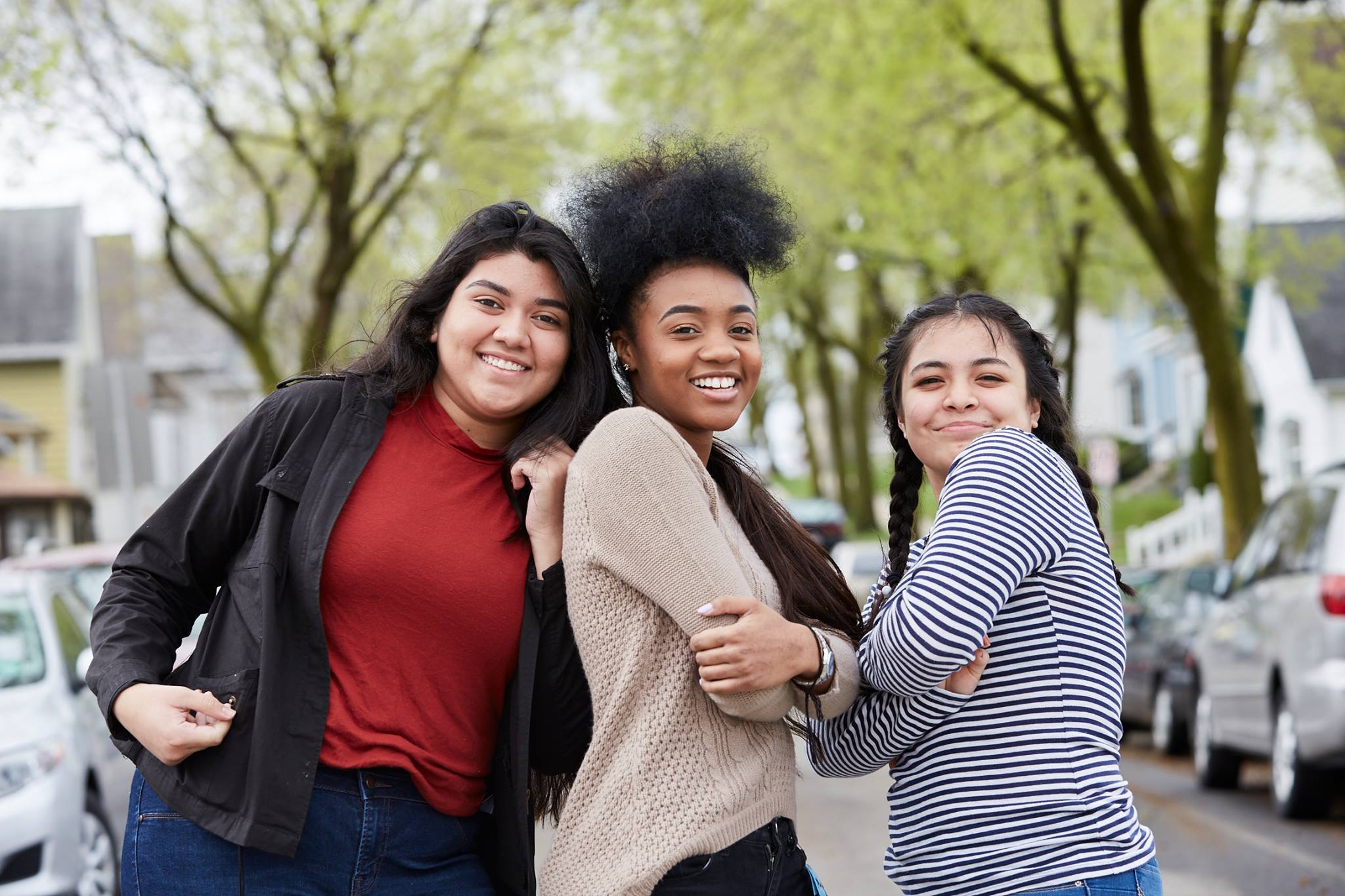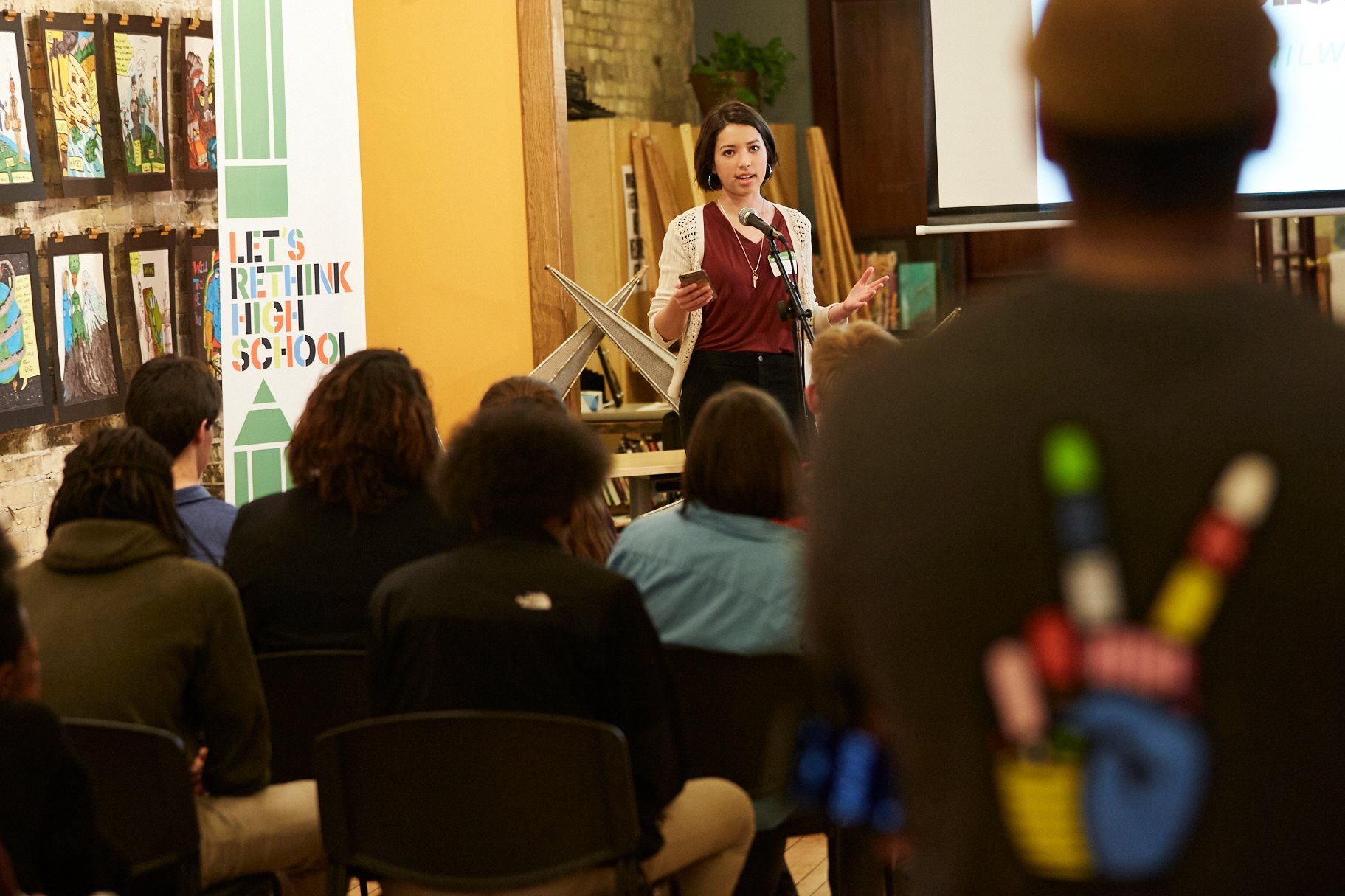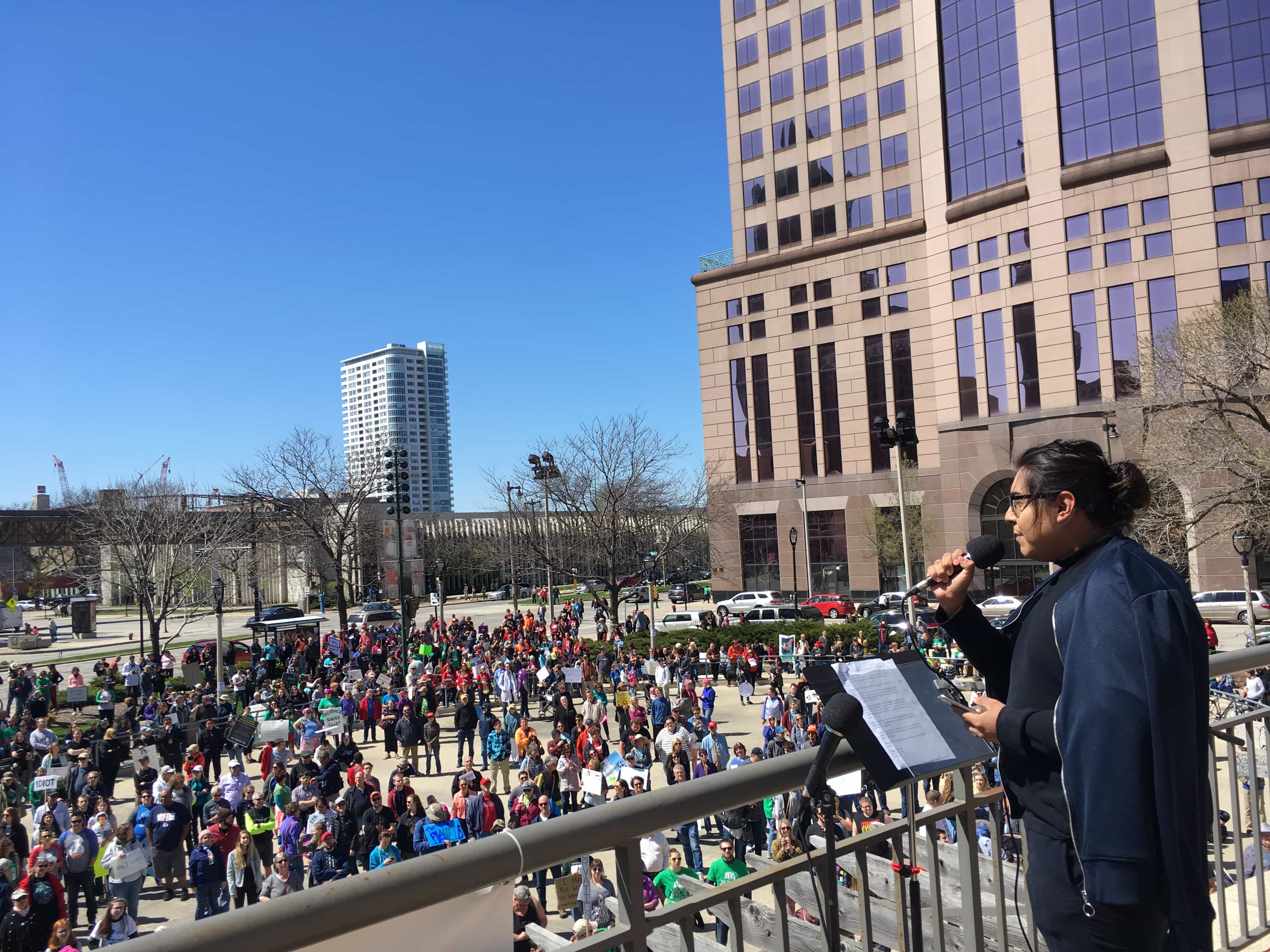Escuela Verde (EV) is a teacher-powered public charter school in Milwaukee, WI where learners and advisors work together openly and transparently to manage the school. EV does not have a principal or Central Office driving the school. What EV has—and fully supports and expects—is a strong, active, participative student governance group. They call it “democratized education,” wherein EV models the principles of a democratic society in its everyday work.
For this entry in our series on how teacher-powered schools model and promote the habits of healthy democracy, we’re hearing from Zaynab Baalbaki, a teacher-advisor at EV, and Ruth Perez, a senior at the school.
A democratic staff structure
Zaynab Baalbaki, teacher-advisor at EV: EV’s organizational structure is an advisor collective—a team of eight advisors that share teaching and administrative duties. We hold weekly staff meetings with everyone on the team, non-teaching staff included. The meetings are held Mondays when students have half-days for afternoon home-study. We cover anything we need to know, ranging from budget to student issues to curricular concerns. Decisions are made with a fist to five voting scale.
The collective can be challenging. First, our meetings tend to be quite long so everyone has a voice and is able to share out what they need to. Then we all vote on every issue. This eats up some time. When we have short meetings, we’re surprised! Another challenge is accountability. We hold each other accountable for all the responsibilities of running the school, and we must be vigilant in this oversight so that accountability is never put to the back burner.
Civic participation opportunities for students
Zaynab: We often collaborate with organizations doing meaningful work. The way we do this looks different based on the needs and wants of EV and the partnering organization. For example, it could entail EV providing students to the organization, creating an event together, guiding a senior student on their project, or bringing the organization to the school to lead a seminar.
To become a collaborating partner, organizations are invited by an advisor—we call this person “the connector”—to present at our staff meetings. Everyone listens to the presentation, asks questions, and afterwards votes on the newly established partnership. We reflect deeply to ensure the partnership is providing a good for the EV community.

Ruth Perez, senior at EV: During the summer, I had the opportunity to work with the ACLU to coordinate and facilitate workshops to engage students to be participants of change through “artivism.” I helped introduce social change through art to youth from all over Milwaukee, one of my biggest accomplishments of the year. I also met many community leaders making a difference, including our newly elected Lt. Governor Mandela Barnes, attorney Bryan A. Stevenson, pro-choice activist Cecile Richards, and co-founder of Black Lives Matter Patrisse Cullor.
As a woman of color, I have been inspired to achieve and persist in my journey—and to continue to fight for everyone’s rights. EV has allowed me to incorporate this experience into my senior thesis project, earning civics credit. Furthermore, I’ve been able to achieve what I never thought was possible: sharing my experiences of leading with other students.
Autonomy makes it possible

Zaynab: EV teacher-advisors have flexibility to plan the curriculum and school day, and truly capitalize on the individual strengths we bring to the team. This is because we enjoy all 15 areas of teacher-powered autonomy. We have used our autonomy over curriculum to establish workshops based on our school values—including safety, dignity, and restoration. One workshop, called Youth Activist, is grounded in our value of social justice. Students take this workshop to realize the power youth have to advocate for themselves and for others who do not have a voice.
Also, as social justice issues arise over the school year, we are able to accomodate and change the school day and instruction. For example, if there is a protest or march the students wanted to participate in, we allow for the students to join and attend.
Flexing student agency to motivate others

Ruth: This year, I have partnered with Leaders Igniting Transformation (LIT), an organization that focuses on investing in students from Milwaukee’s Southside and Northside. (If you don’t know, Milwaukee is one the most segregated cities in the nation; for more information, this is a good article.)
I saw this as an opportunity to engage my fellow classmates in being active members of our community by starting a LIT chapter in our school. A memorable highlight was reaching out to first-time voters at EV and taking them to vote early this past election.
Being able to practice democracy is a very important skill to have at a young age, especially if we want to make an impact in our communities. Thanks to the non-traditional learning setting of our teacher-powered school, I’ve learned from my teachers and fellow students the true meaning of community. Namely, EV believes it is important for us to be aware of our surroundings and make ourselves useful members of the community by participating and volunteering in it. And EV embraces members of our community from all backgrounds and cultures, and inspires me to do the same.
My senior thesis work is on youth civic engagement and how it can be implemented at schools—and I will be enrolling in college next year studying Community Engagement. I am proud to call Escuela Verde my family—and to help make a difference in people’s lives.
 NEWSLETTER SIGN-UP
NEWSLETTER SIGN-UP



